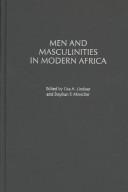| Listing 1 - 10 of 10 |
Sort by
|
Book
ISBN: 9783837620597 Year: 2013 Publisher: Bielefeld : Transcript,
Abstract | Keywords | Export | Availability | Bookmark
 Loading...
Loading...Choose an application
- Reference Manager
- EndNote
- RefWorks (Direct export to RefWorks)
Während Behinderung mittlerweile nicht nur in den interdisziplinären Disability Studies selbstverständlich als soziokulturelle Kategorie gefasst wird, finden Anschlüsse an die Visual Culture bislang nur vereinzelt statt. In diese Forschungslücke schreiben sich die Beiträge des Sammelbandes ein: Beispielhaft werden Bilder aus Literatur, Kunst, Archivfotografie und Dokumentarfilm vorgestellt und detaillierten Analysen unterzogen. Gibt es medienspezifische Inszenierungsstrategien, die ein kulturell erlerntes Sehen oder Übersehen von Behinderung bestätigen oder irritieren? Inwieweit wird die Konstruktion der Bilder sichtbar? Und besteht die Möglichkeit, Bilder jenseits der Dichotomie von Behinderung und Nicht-Behinderung zu produzieren?
Behinderung. --- Künste. --- Soziale Konstruktion. --- Visualisierung.
Book
ISBN: 9783037346365 3037346361 Year: 2016 Publisher: Zürich : Diaphanes,
Abstract | Keywords | Export | Availability | Bookmark
 Loading...
Loading...Choose an application
- Reference Manager
- EndNote
- RefWorks (Direct export to RefWorks)
Der 'Animismus' ist eine Erfindung der Ethnologie des 19. Jahrhunderts, geprägt auf dem Höhepunkt des europäischen Kolonialismus. Animisten bevölkern die unbelebte Natur mit Seelen und Geistern. Das erklärt man als eine die materielle Realität verkennende 'Projektion', durch die den Dingen und der Natur Leben und Handlungsmacht zugeschrieben wird. Animismus wird so zum Gegenbild moderner Wissenschaft, zum Ausdruck eines 'Naturzustands', in dem Psyche und Natur als ungeschieden gelten. Wenn sich letzthin ein neues Interesse am Animismus herausgebildet hat, liegt das nicht daran, dass der Begriff als wissenschaftliche Kategorie rehabilitiert wurde. Vielmehr ist die kategorische Trennung von subjektiver und objektiver Welt selbst in Bewegung geraten.
Animismus. --- Begriff. --- Erkenntnistheorie. --- Fremdheit. --- Kulturanthropologie. --- Moderne. --- Naturverständnis. --- Soziale Konstruktion. --- Ästhetik.
Book
Abstract | Keywords | Export | Availability | Bookmark
 Loading...
Loading...Choose an application
- Reference Manager
- EndNote
- RefWorks (Direct export to RefWorks)
Abgrenzung.
---
Aneignung
Book
ISBN: 9780199315673 0199315671 Year: 2016 Publisher: New York ; Oxford : Oxford University Press,
Abstract | Keywords | Export | Availability | Bookmark
 Loading...
Loading...Choose an application
- Reference Manager
- EndNote
- RefWorks (Direct export to RefWorks)
" ... a comprehensive and contemporary reader for the growing field of men's and masculinities studies. It takes a conceptual approach by covering the wide range of scholarship being done on masculinities beyond the model of hegemonic masculinity. C.J. Pascoe and Tristan Bridges extend the boundaries of the field and provide a new framework for understanding masculinities studies. Rather than taking a topics-based approach to masculinity, Exploring Masculinities offers an innovative conceptual approach that enables students to study a given phenomenon from a variety of perspectives. It divides up the field in ways that provide accessible introductions to complex debates and key intra- and interdisciplinary distinctions. The book provides a portable set of conceptual tools on which scholars and students can rely to analyze masculinities in different contexts, time periods, and embodiments."--Back cover.
Masculinity --- Men --- Men's studies --- Masculinité --- Homme --- Identity --- Identité --- Masculinity. --- Männlichkeitskult. --- Männlichkeit. --- Geschlechterrolle. --- Geschlechterstereotyp. --- Soziale Konstruktion. --- Identity. --- Masculinité. --- Identité. --- Sociology of the family. Sociology of sexuality --- Book --- Masculinité. --- Identité.

ISSN: 10998098 ISBN: 032500255X 0325002541 9780325002545 Year: 2003 Publisher: Portsmouth, NH : Heinemann,
Abstract | Keywords | Export | Availability | Bookmark
 Loading...
Loading...Choose an application
- Reference Manager
- EndNote
- RefWorks (Direct export to RefWorks)
Men --- Masculinity --- Hommes --- Masculinité --- History. --- Histoire --- #SBIB:39A73 --- #SBIB:39A11 --- Etnografie: Afrika --- Antropologie : socio-politieke structuren en relaties --- Masculinity. --- Men. --- Modernität. --- Männlichkeit --- Männlichkeit. --- Soziale Konstruktion --- History --- Africa, Sub-Saharan. --- Schwarzafrika --- Subsaharisches Afrika. --- Masculinité --- Human males --- Human beings --- Males --- Effeminacy --- Masculinity (Psychology) --- Sex (Psychology)
Book
ISBN: 3839403308 3899423305 9783839403303 Year: 2015 Publisher: Bielefeld transcript Verlag
Abstract | Keywords | Export | Availability | Bookmark
 Loading...
Loading...Choose an application
- Reference Manager
- EndNote
- RefWorks (Direct export to RefWorks)
Scientology war das gesellschaftspolitische Thema der 1990er Jahre und bis zu den Ereignissen des »11. September« galt Scientology als Synonym des Bösen überhaupt. Diese erste umfassende deutschsprachige Scientology-Analyse, die keinem normativen Ansatz verpflichtet ist, lässt die Frage nach dem Bösen notwendig offen. Aber sie kommt zu einem unbequemen Ergebnis, weil der Blick »jenseits der Devianz« den scientologischen Wesenszug der modernen Gesellschaft und ihrer »Normalitätsreligion« enthüllt. »Dieses ist ein gutes Buch.« Gerd Roellecke, Frankfurter Allgemeine Zeitung, 17.06.2005 »Scientology war das gesellschaftspolitische Thema der 1990er Jahre und bis zu den Ereignissen des 11. September galt Scientology als Synonym des Bösen überhaupt. Diese erste umfassende deutschsprachige Scientology-Analyse, die keinem normativen Ansatz verpflichtet ist, lässt die Frage nach dem Bösen notwendig offen. Aber sie kommt zu einem unbequemen Ergebnis, weil der Blick ›jenseits der Devianz‹ den scientologischen Wesenszug der modernen Gesellschaft und ihrer 'Normalitätsreligion' enthüllt.« VKRG inform, 4 (2005) »Die Forschung zu diesem Thema [Scientology] im deutschsprachigen Raum [war] sehr unbefriedigend. Diese Situation ändert sich mit dem [...] Buch. [E]s ist nicht nur eines der wissenschaftlich reflektiertesten, sondern zweifellos auch eines der informativsten Bücher über Scientology, das derzeit auf dem deutschen Markt zu finden ist« Hubert Knoblauch, Soziologische Revue, 3 (2006) »Der Autor widerspricht der gängigen Meinung, Scientology sei eine religiöe Sekte, deren Mitgieder mithilfe von Manipulationen und Psychotechniken dazu gebracht werden die materiellen Interessen der Organisation zu befriedigen. Vielmehr, so zeigt er mithilfe der so genannten Kulturwertperspektive, knüpfen die Ideologie und das Weltbild von Scientology in vielfältiger Weise an Wertorientierungen und Wirklichkeitsvorstellungen moderner Gesellschaften an.« Zeitschrift für Politikwissenschaft-Bibliografie, 1/06, 16.05.2006 Besprochen in: Deutschlandradio Kultur, 11.11.2005, Kirsten Dietrich Zeitschrift für Religionswissenschaft, 1 (2006), Stefan Schlang
Sociology --- Culture. --- Religious Studies. --- Sociology of Religion. --- Sociology. --- Scientology; Religion; Kultur; Moderne Gesellschaft; Religionssoziologie; Religionswissenschaft; Soziologie; Culture; Sociology of Religion; Religious Studies; Sociology --- Scientology --- 1990er Jahre --- 11 September --- Normalitätsreligion --- Spiritualisierung der Dianetik --- applied religious philosophy --- L. Ron Hubbard --- die Scientology-Organisation --- Religion --- die dianetische Verstandesmechanik --- Rationalitätsverstandnis --- das scientologische Wirklichkeitsmodell --- Ideologie --- soziale Konstruktion --- Dianetik --- Theta --- Thetan --- die dynamischen Prinzipen des lebens --- Wissenschaft --- Technologie --- Bewusstsein
Book
ISBN: 9791036538285 373150216X 1000040857 Year: 2014 Publisher: KIT Scientific Publishing
Abstract | Keywords | Export | Availability | Bookmark
 Loading...
Loading...Choose an application
- Reference Manager
- EndNote
- RefWorks (Direct export to RefWorks)
The essays in this volume on images of scientific and technical civilization in the 19th and 20th centuries deal with approaches to the social constructions of a fascinating history of technology. They are a contribution to the establishment of the field of historical technology acceptance research at KIT. Particular attention is paid to the history of mobility.
Civilization. --- Cultural history. --- Cultural history --- Barbarism --- Civilisation --- Auxiliary sciences of history --- Culture --- World Decade for Cultural Development, 1988-1997 --- Kulturgeschichte der Technik Technik als soziale Konstruktion Technik in der kulturellen Repräsentation Bildinterpretationencultural history of technology iconic turn cultural representation of technology

ISBN: 2701801451 9782701801452 Year: 2001 Volume: *1 Publisher: Paris: De Boccard,
Abstract | Keywords | Export | Availability | Bookmark
 Loading...
Loading...Choose an application
- Reference Manager
- EndNote
- RefWorks (Direct export to RefWorks)
Celebrities
---
Celebrities in literature
---
Célébrités
---
Célebrités dans la littérature
---
Historiography
---
Congresses
---
Public opinion
---
Historiographie
---
Congrès
---
Opinion publique
---
Rome
---
History
---
Sources
---
Histoire
---
Hommes d'Etat
---
Heros
---
Célébrités
---
Célebrités dans la littérature
---
Congrès
---
Beeldvorming.
---
Biographik
---
Heroes
---
Heroes.
---
Historische Persönlichkeit
Book
ISBN: 3839426502 3837626504 9783839426500 9783837626506 Year: 2016 Publisher: Bielefeld: transcript,
Abstract | Keywords | Export | Availability | Bookmark
 Loading...
Loading...Choose an application
- Reference Manager
- EndNote
- RefWorks (Direct export to RefWorks)
"Spatial and identity research operates with differentiations and relations. These are particularly useful heuristic tools when examining border regions where social and geopolitical demarcations diverge. Applying this approach, the authors of this volume investigate spatial and identity constructions in cross-border contexts as they appear in everyday, institutional and media practices. The results are discussed with a keen eye for obliquely aligned spaces and identities and relinked to governmental issues of normalization and subjectivation. The studies base upon empirical surveys conducted in Germany, France, Belgium and Luxembourg."--
Boundaries. --- Identity (Psychology) --- Geopolitics. --- World politics --- Personal identity --- Personality --- Self --- Ego (Psychology) --- Individuality --- Borders (Geography) --- Boundary lines --- Frontiers --- Geographical boundaries --- International boundaries --- Lines, Boundary --- Natural boundaries --- Perimeters (Boundaries) --- Political boundaries --- Borderlands --- Territory, National --- Border. --- Cultural Anthropology. --- Culture. --- Europe. --- Interculturalism. --- Society. --- Sociology of Culture. --- Space. --- Identity; Space; Border; Culture; Europe; Society; Cultural Anthropology; Sociology of Culture; Interculturalism --- Grenzgebiet --- Regionale Identität --- Soziale Konstruktion --- Deutschland --- Frankreich --- Belgien --- Luxemburg
Book
ISBN: 9780199892624 9780199892631 0199892628 0199892636 0199980055 Year: 2012 Publisher: Oxford: Oxford university press,
Abstract | Keywords | Export | Availability | Bookmark
 Loading...
Loading...Choose an application
- Reference Manager
- EndNote
- RefWorks (Direct export to RefWorks)
Contemporary theorists use the term "social construction" with the aim of exposing how what's purportedly "natural" is often at least partly social and, more specifically, how this masking of the social is politically significant. In these previously published essays, Sally Haslanger draws on insights from feminist and critical race theory to explore and develop the idea that gender and race are positions within a structure of social relations. On this interpretation, the point of saying that gender and race are socially constructed is not to make a causal claim about the origins of our concepts of gender and race, or to take a stand in the nature/nurture debate, but to locate these categories within a realist social ontology. This is politically important, for by theorizing how gender and race fit within different structures of social relations we are better able to identify and combat forms of systematic injustice. Although the central essays of the book focus on a critical social realism about gender and race, these accounts function as case studies for a broader critical social realism. To develop this broader approach, several essays offer reworked notions of ideology, practice, and social structure, drawing on recent research in sociology and social psychology. Ideology, on the proposed view, is a relatively stable set of shared dispositions to respond to the world, often in ways that also shape the world to evoke those very dispositions. This looping of our dispositions through the material world enables the social to appear natural. Additional essays in the book situate this approach to social phenomena in relation to philosophical methodology, and to specific debates in metaphysics, epistemology, and philosophy of language. The book as a whole explores the interface between analytic philosophy and critical theory.
Political philosophy. Social philosophy --- Metaphysics --- Critical theory. --- Feminism. --- Feminismus. --- Kritische Theorie. --- Rassendiskriminierung. --- Social constructionism. --- Social sciences --- Soziale Konstruktion. --- Philosophy. --- Critical theory --- Feminism --- Social constructionism --- Social philosophy --- Social theory --- Constructionism, Social --- Social psychology --- Emancipation of women --- Feminist movement --- Women --- Women's lib --- Women's liberation --- Women's liberation movement --- Women's movement --- Social movements --- Anti-feminism --- Critical social theory --- Critical theory (Philosophy) --- Critical theory (Sociology) --- Negative philosophy --- Criticism (Philosophy) --- Philosophy, Modern --- Rationalism --- Sociology --- Frankfurt school of sociology --- Socialism --- Philosophy --- Emancipation --- Race --- Gender --- Identity --- Theory --- Book --- Social constructivism --- Epistemology
| Listing 1 - 10 of 10 |
Sort by
|

 Search
Search Feedback
Feedback About UniCat
About UniCat  Help
Help News
News